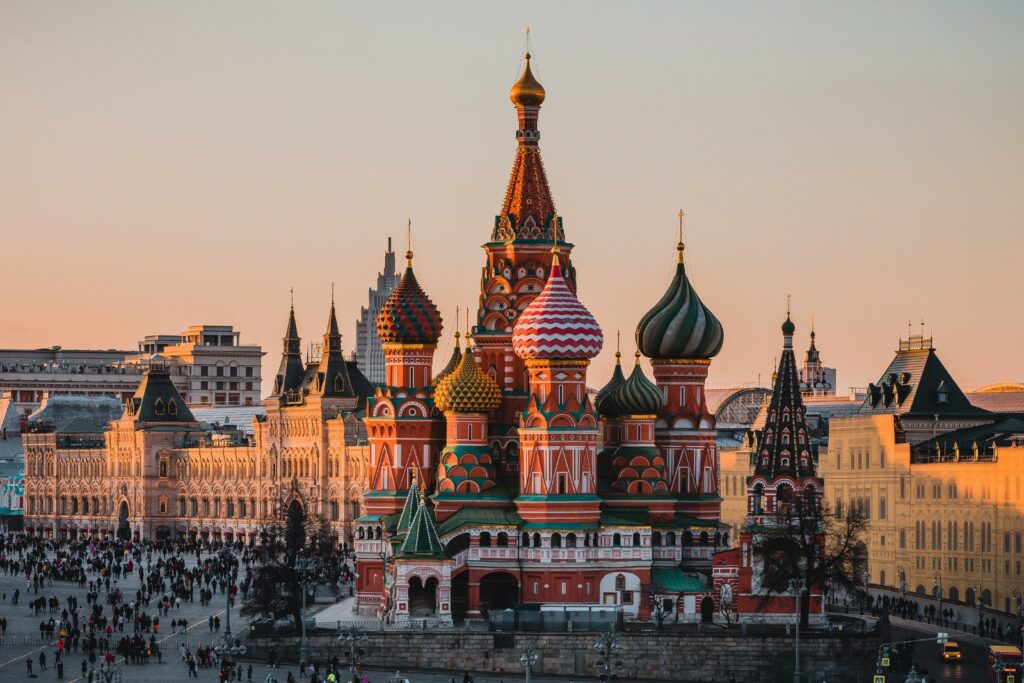
- Country Profile
- Student Life
- Education
- Requirements
- Costs
- FAQs
- prev
- next
Intro
Why Study in Russia?

Russia boasts a high-level educational system that encourages innovation, creativity, and independent thinking. International students who choose study in Russia as their study destination find their education not only enjoyable but also challenging, benefiting from the intellectual rigor and rich academic traditions of this prestigious country. Study in Russia offers a unique opportunity to gain a world-class education in a culturally rich and academically stimulating environment.
Why Study in Russia?
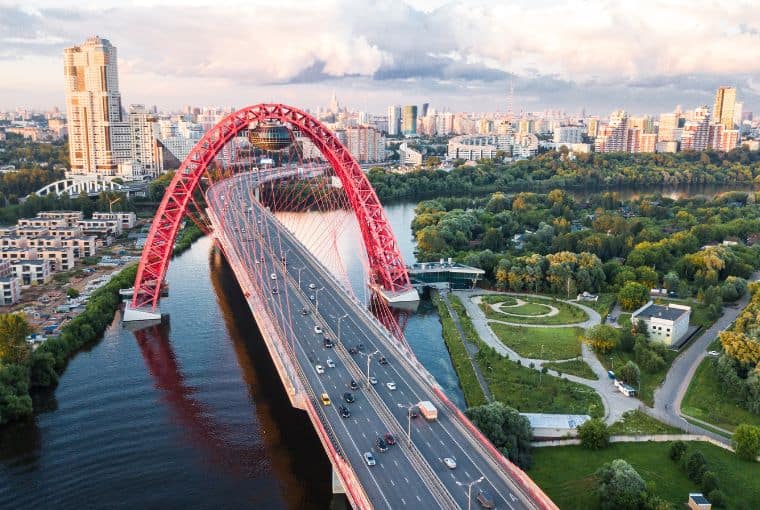
- Educational Excellence: Russia’s educational institutions are renowned for their academic rigor, particularly in fields like mechanical engineering, project management, social sciences, and Russian studies. Many Russian universities rank highly in global rankings such as the QS World University Rankings, especially in scientific subjects. This reputation for excellence ensures that graduate students and degree-seeking students are well-prepared to enter the global workforce with strong academic goals and numerous study choices.
- Affordable and Accessible: One of the key advantages of studying in Russia is the affordability of tuition fees and living expenses. Compared to other European countries and popular study destinations like the United Kingdom or the United States, Russia offers affordable education without compromising on the quality of instruction. Additionally, international students are allowed to work part-time, which helps to offset living costs while gaining valuable work experience.
- Cultural and Historical Richness: Russia’s rich history is another significant draw for international students. The country’s historical cities, like Moscow, St. Petersburg, and Kazan, are living museums, with architecture that tells the story of Russia’s imperial past, its Soviet era, and its modern-day resurgence. These cities offer students a chance to explore iconic sites such as the Kremlin, the Red Square, and the Hermitage Museum, while also experiencing a vibrant contemporary culture.Moreover, Russia’s commitment to preserving its history is evident in its numerous museums, galleries, and cultural institutions, many of which offer special programs and discounts for students. This access to a deep cultural reservoir provides a unique opportunity for international students to enhance their educational experience by engaging with the country’s rich heritage.
- Climate and Geographical Diversity: As the largest country in the world, Russia’s vast geographical expanse means students experience diverse climates, from the cold winters of Siberia to the milder climates in the south. This climatic variety adds a unique dimension to the student experience, with each season offering its own set of activities and experiences in the largest cities and across various regions.
- Global Recognition and Career Opportunities: Graduating from a Russian university opens doors worldwide. Whether you choose to stay in Russia, where obtaining a work visa is straightforward, or relocate to another country, a degree from a Russian institution is highly respected globally. This international recognition ensures that Russian graduates are considered high-caliber employees by employers around the world.
Quick Facts About Russia for International Students
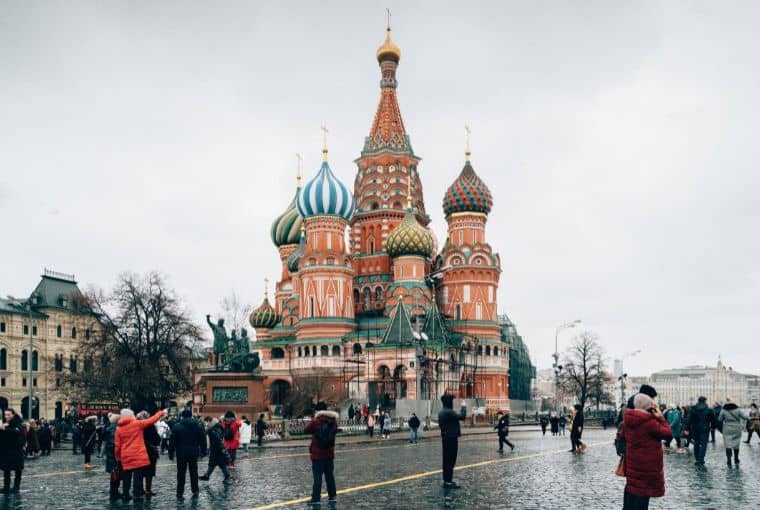
Before we delve deeper, let’s take a look at some facts about Russia
- A Beautiful and Safe Country: Russia is not only a beautiful place to live, with its stunning landscapes and vibrant cities, but it is also safe, making it an ideal destination for international students.
- Diverse Study Opportunities: Russia offers a wide range of study programs, from preparatory courses to postgraduate degrees, all designed with a global perspective. Students can find study options across various fields, including social sciences, mechanical engineering, and project management.
- A Crossroads of Continents: Russia’s unique location, straddling both Europe and Asia, makes it a diverse and dynamic place to study. It is the largest country in the world, providing a rich backdrop for academic and cultural exploration.
- Popular Study Destination: More than 250,000 students from 168 countries choose Russia as their study destination each year, drawn by its high-quality education, affordable living costs, and welcoming environment for non-EU students.
University Programs Globally
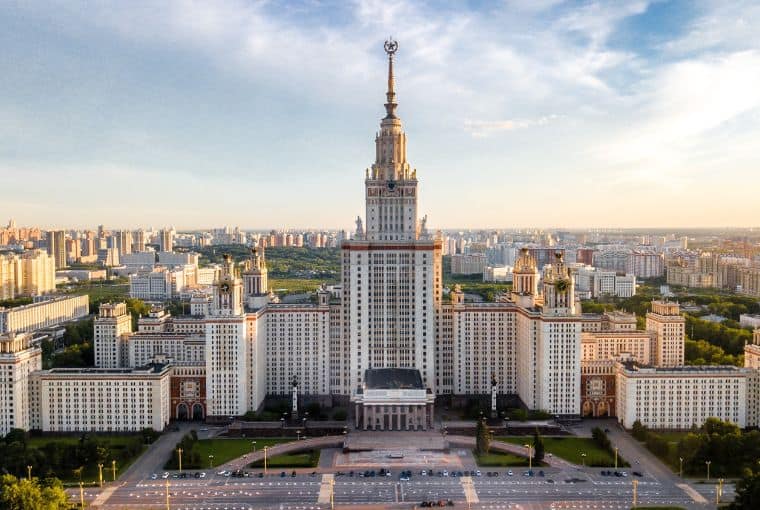
In Russia, Courses offered by educational institutions from the preparatory level to the postgraduate programs, are flexible and equipped with a global perspective. In 2014, fields such as engineering, accounting, and health sciences ranked high according to the QS Ranking of universities according to the scientific subject. Russian universities also rank high on the quality of teaching, scientific research, and graduate employment.
Another important point added to Russia's attractiveness is the fact that its comparison with other famous study destinations is less expensive. While most of the countries 'or faculty's reputations are high in their cost, Russia is excluded from this rule.
Both tuition and living expenses are in a more reasonable degree compared to other countries such as the United Kingdom, for example. But the cost of living is no different from a major city in your country. Moreover, according to the employment regulations in Russia, foreign students are allowed to work part-time while studying.
Life in Russia
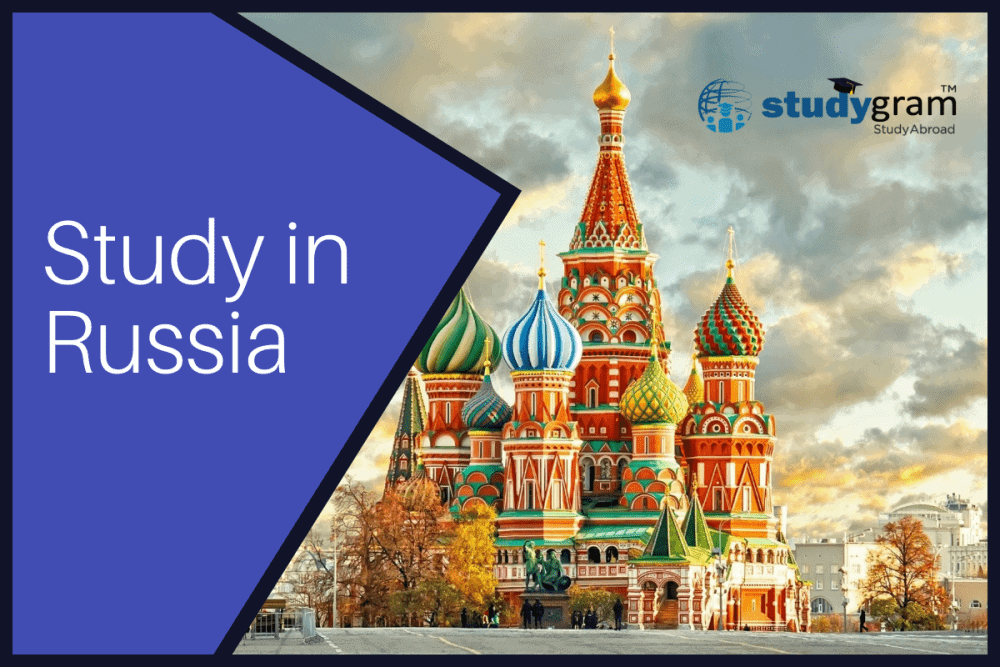
Choosing to study in Russia will provide you with great opportunities and experiences, as well as a world-class education. Here are four reasons why you think of Russia as a destination to study abroad.
A Distinguished Multicultural Lifestyle
Russia’s cultural landscape is a vibrant mix of traditions and modernity, creating an enriching environment for students. In Moscow and St. Petersburg, you’ll find a blend of historical charm and contemporary flair. Moscow, with its iconic Red Square and the Kremlin, offers a dynamic urban experience, while St. Petersburg, known for its canals and historic architecture, provides a more serene yet equally captivating atmosphere.
Russian universities themselves are melting pots of cultures, with students from around the globe contributing to a diverse academic community. This multicultural interaction fosters a unique environment where students can learn from each other’s backgrounds and perspectives, enhancing their global outlook and cultural sensitivity.
Russian Culture
Russian culture is a tapestry of diverse influences, from its indigenous roots to the global exchanges it has experienced over centuries. Russian society is known for its strong sense of community and respect for individual rights. The country’s commitment to:
- Respect for Personal Freedom and Dignity: Ensures that every individual’s rights are upheld.
- Freedom of Association and Expression: Allows for a wide range of opinions and beliefs to flourish.
- Support for Parliamentary Democracy: Guarantees governance through laws and democratic processes.
- Equality Under the Law: Promotes a fair and just society.
- Gender Equality: Supports equal rights and opportunities for all genders.
This cultural framework promotes a balanced and inclusive society, where students from all backgrounds can feel valued and respected.
Popular Activities to Do in Russia
Russia’s vast landscape offers a plethora of activities for students to enjoy. Beyond academic life, students can:
- Explore Historic Sites: Visit the Hermitage Museum in St. Petersburg, or the historical sites of the Golden Ring.
- Enjoy Outdoor Adventures: Take part in winter sports like skiing and snowboarding in Siberia or explore the picturesque hiking trails in the Caucasus Mountains.
- Immerse in Local Festivals: Participate in local festivals such as Maslenitsa, a traditional Slavic festival marking the end of winter, or the Sabantuy harvest festival celebrated by Tatar communities.
These activities provide a well-rounded experience, allowing students to explore Russia’s natural beauty and cultural richness.
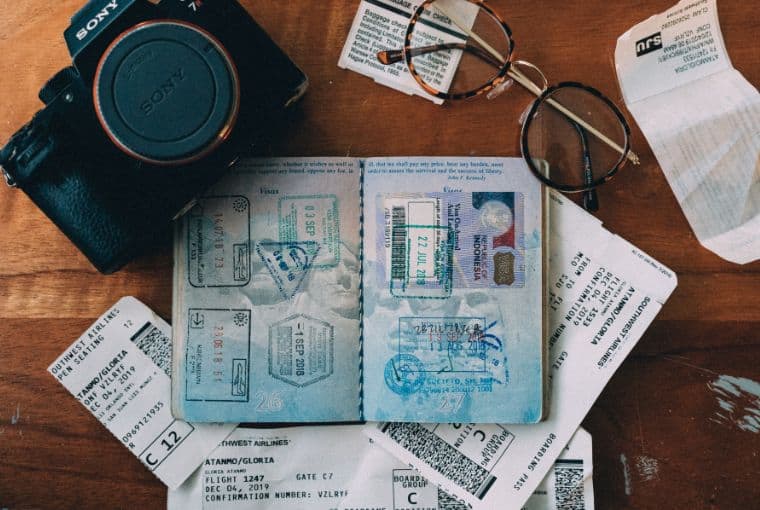
Transportation in Russia
Navigating Russia’s vast and diverse landscapes is made easy with its comprehensive public transportation system. From bustling city metros to scenic trains and reliable taxis, students can access a variety of options to explore their new surroundings efficiently. Whether commuting to campus or traveling across the country, understanding the transportation choices available will enhance your experience in Russia.
Public Transportation
- Trains: Russia boasts an extensive railway network, including the iconic Trans-Siberian Railway and high-speed services like Sapsan.
- Buses: Local and intercity buses are widely available, covering both urban and regional travel.
- Trams: Cities such as Moscow and St. Petersburg feature tram systems for scenic urban journeys.
- Ferries: In cities with waterways, ferries provide unique travel options and picturesque views.
- Metro: Major cities have modern metro systems known for their efficiency and impressive architecture.
Taxi Services
Taxis are available throughout major cities and towns, with options ranging from traditional metered taxis to ride-sharing services like Yandex. Taxi and Uber.
Driving in Russia
- Foreign Driving License: Foreign students can drive with a valid foreign license. If not in Russian, a translation or International Driving Permit (IDP) is necessary.
- Road Rules: Russia drives on the right side of the road. Be aware of local traffic laws.
- Road Conditions: Road quality varies; winter driving requires extra caution due to snow and ice.
Beautiful Weather and Scenery
Beautiful Weather and Scenery
Russia’s diverse climate and geography provide numerous opportunities for exploration:
- Winter Wonders: Experience the magical winter landscapes of Siberia, where the snow-covered terrain offers breathtaking views and unique winter activities.
- Summer Escapes: Enjoy the mild summer temperatures in cities like Moscow and St. Petersburg or relax by the Black Sea’s sunny beaches.
- Natural Landscapes: Explore Russia’s vast wilderness areas, including Lake Baikal, the world’s deepest freshwater lake, and the Kamchatka Peninsula, known for its volcanic landscapes and hot springs.
Studying in Russia gives students the chance to witness and enjoy these diverse environments, enriching their experience and offering a unique backdrop to their academic journey.
Accommodation Choice
When studying in Russia, accommodation plays a crucial role in your overall experience. Here are the main options:
- University Dormitories: Most Russian universities provide on-campus housing, which includes basic amenities like a bed, an Internet connection, and hot/cold water. Dormitories are a great choice for first-time visitors, offering an affordable and community-oriented living environment.
- Private Hostels: Located near universities, these offer more privacy and a range of facilities. They are suitable for those who prefer independence and have specific requirements for their accommodation.
Academic Environment

Russian universities are renowned for their rigorous academic standards and innovative approaches. The emphasis on practical knowledge and critical thinking encourages students to engage deeply with their subjects. The supportive academic environment fosters intellectual growth and collaborative learning, preparing students for successful careers
Challenges
While studying in Russia offers many benefits, there are challenges to consider:
- Language Barrier: Russian is the primary language, which may pose initial difficulties. However, universities often provide language support to help students adapt.
- Cultural Differences: Adjusting to Russian culture may take time, but engaging with local customs and traditions can ease this transition.
- Food and Climate: Adapting to Russian cuisine and severe climate conditions may be challenging, but many universities offer international food options and support to help students adjust.
By addressing these challenges proactively, students can make the most of their educational and cultural experience in Russia.
Submit an Inquiry
Educational System in Russia

The Beginning of the Educational System in Russia
The foundation of Russia's higher education system dates back to the early 18th century, with the establishment of universities such as the University of St. Petersburg (now Saint Petersburg State University). Initially modeled after the German education system, Russia's educational framework has evolved significantly over the centuries. During the Soviet era, the education system became universal, ensuring that all citizens received a high school diploma. Today, Russia continues to adapt its education system, aligning with international standards while maintaining its unique educational traditions.
The Institutions Attributed to Russian Education
Russia boasts a rich and diverse educational landscape, featuring approximately 180,000 educational institutions across the country. These institutions serve over 34 million students and employ around 6 million educators and administrative staff. This extensive network includes a wide range of institutions from primary schools to specialized universities and research centers, reflecting the country's commitment to providing comprehensive education at all levels.
Higher Education in Russia
The Russian higher education system is well-regarded for its rigor and breadth, with several key levels of study:
- Bachelor’s Degree: Typically awarded after four years of full-time study, this undergraduate program provides a broad academic foundation across various fields. It is a prerequisite for pursuing further studies at the master’s level.
- Master’s Degree: This two-year program follows the completion of a Bachelor’s degree and includes one year dedicated to research and thesis preparation. It offers advanced knowledge and practical skills in a specialized field, preparing students for professional careers or further academic pursuits.
- PhD Degree: A three-year doctoral program that builds upon the Master’s degree, focusing on original research and contributing to the body of knowledge in a particular field. The PhD degree is a key qualification for those pursuing careers in academia or high-level research.
Higher Education of the Russian Educational System
This system is one of the most stringent and abundant in the submitted science, and it keeps pace with developments in science and technology.
Russian higher education is supervised by the Ministry of Education and Russian Sciences, which is the authority responsible for granting the necessary licenses to universities and educational institutions and conducting research and development curricula.
Study Period in Russia
The academic year in Russia is divided into two semesters:
- Fall Semester: Lasts approximately four months, from September to December, culminating in mid-term exams and project submissions.
- Spring Semester: Runs from February to June, ending with final exams and the submission of theses and practical work. Each semester includes a period dedicated to research and exams, ensuring a comprehensive evaluation of student progress.
The Development of the Russian Education System
In recent years, the Russian educational system has undergone significant reforms to better meet the needs of students and the global labor market. Key developments include:
- Integration with International Standards: Russia has aligned its education system with the Bologna Process, facilitating greater recognition of Russian qualifications abroad and enhancing the mobility of students and academics.
- Encouragement of Scientific Innovation: There is a strong focus on fostering scientific research and innovation, with numerous competitions and collaborations at both national and international levels. Universities are increasingly involved in cutting-edge research and technological advancements.
- Curriculum Enhancements: Educational programs are continuously updated to reflect the latest developments in science and technology, ensuring that graduates are well-prepared for the evolving demands of the global workforce.
Scholarship Opportunities
Exploring scholarship opportunities is crucial for many international students. Russia offers various scholarships, including government-funded options, which can cover tuition fees, and living expenses, and even provide a stipend. A thorough scholarship search can reveal opportunities tailored to your field of study, whether it's engineering, medicine, or the arts.
Popularity Among International Students
Russia is home to nearly a quarter of a million international students studying across governmental and non-governmental universities. The country’s rich cultural heritage, diverse academic programs, and strong emphasis on science and technology make it an attractive destination for students from around the world.
Submit an Inquiry
Requirements for Study in Russia

Studying in Russia offers a unique opportunity to experience a diverse and rich academic environment. However, applying to a Russian university as an international student involves meeting specific requirements, which can differ significantly from those in other countries. Below is a detailed guide to help you understand and navigate the key requirements for studying in Russia.
Language Requirements
The official language in Russia is Russian, and most study programmes are offered in Russian. However, many prestigious universities also offer programs in English, German, and French to accommodate international students. To ensure you meet the language proficiency requirements, you may need to demonstrate your capabilities in one of the following ways:
- Russian Language Programs: If you plan to study in Russian, you may need to take a preparatory course to improve your language skills. These courses are often offered by Russian State Universities and can help you achieve the proficiency needed to succeed in your chosen study programme.
- English-Language Programs: If you choose to study in English, you must provide proof of your English proficiency. Accepted tests include:
- TOEFL (Test of English as a Foreign Language)
- IELTS (International English Language Testing System)
- Cambridge English: Advanced (CAE)
Some programs may also accept GRE or GMAT scores, especially for graduate studies. Additionally, certain Medicine programmes might require specific English proficiency scores or tests like the IELTS or TOEFL to ensure you meet the language standards for medical education.
- Other Languages: If you wish to study in German or French, similar language proficiency tests and preparatory courses are available.
Academic Qualifications
- Undergraduate Studies: Admission to undergraduate programs generally requires a high school diploma or equivalent. Some programs may also require specific subjects or a certain grade point average (GPA).
- Graduate Studies (Master’s and PhD): For postgraduate programs, you need to have completed a relevant Bachelor’s degree. Admission to a Master’s program might also consider your research abilities, professional experience, and sometimes a personal statement or research proposal. For PhD programs, a Master’s degree in a related field is typically required, along with a research proposal and the identification of a faculty member willing to supervise your research.
Documentation Requirements
When applying to study in Russia, you will need to submit a series of standard documents as part of your application:
- Application Form: Complete the university’s official application form.
- Identification: Provide a valid ID or passport.
- Previous Education Certificates: Submit your high school diploma for undergraduate applications or your Bachelor’s degree for graduate studies.
- Medical Certificate: A document certifying that you are fit to study abroad is required.
- Passport Photographs: Include several recent passport-sized photographs.
- Official Translation: All sets of documents must be officially translated into Russian and notarized.
- Additional Documents: Depending on your study programme, you may need to submit other additional documents, such as letters of recommendation, a cover letter, or a research proposal.
Additional Preparatory Steps
- Preparation Courses: These courses are invaluable if you need additional academic preparation before starting your degree. They can help bridge the gap in your education and improve your chances of being accepted into your desired program. Common preparatory courses include pre-M.B.A., pre-Law, pre-Medicine, and general foundation courses.
- English-Language Preparation: If you are enrolling in an English-taught program, you might consider taking an English-language preparation course to enhance your skills and prepare for standardized tests like IELTS, TOEFL, or PTE Academic. This is especially important for postgraduate students pursuing Medical degrees or other specialized fields.
Graduate Studies in Russia
Graduate studies in Russia offer a unique blend of high academic standards, rich cultural experiences, and a diverse range of programs that attract students from around the world. Whether you’re pursuing a Master’s degree, a PhD, or other postgraduate education, Russia provides a robust educational environment, especially in fields like engineering, medicine, natural sciences, and the arts.
Eligibility Criteria for Graduate Studies
- Master’s Programs: Admission typically requires a Bachelor’s degree in a relevant field. Some programs may also consider your research potential, professional experience, and a personal statement or research proposal.
- PhD Programs: A Master’s degree in a related field is usually required. Additionally, you’ll need to submit a research proposal and identify a faculty member who agrees to supervise your research.
Research Opportunities and Academic Environment
Russia’s emphasis on research makes it an attractive destination for graduate students, particularly those interested in science, technology, engineering, and Medical degrees. The country’s universities are equipped with state-of-the-art research facilities and offer numerous opportunities for students to engage in groundbreaking research projects. Collaboration with leading scientists and participation in international conferences are common experiences for postgraduate students in Russia.
Post-Graduation Opportunities
Upon completing your postgraduate education in Russia, you will have several options. You can pursue further academic research, seek postdoctoral positions, or enter the global job market. Russian degrees are recognized worldwide, and graduates often find opportunities in academia, industry, and government sectors.
Application Process and Visa Requirements
- Application for Admission: The admission process begins with the submission of an application to the university. This includes filling out the application form, gathering the required list of documents, and meeting the specific requirements of your chosen program.
- Selection Process: After submitting your application, the university will review your set of documents and decide on your eligibility. This may involve entrance exams or interviews, especially for competitive programs or Medical degrees.
- Student Visa and Entry Visa: Once accepted, you will need to apply for a student visa. The visa process involves submitting your acceptance letter, proof of financial support, and other standard documents required by the Russian consulate. You may also need to obtain an entry visa depending on your nationality.
Submit an Inquiry
Study Costs in Russia

The Cost of Living and Studying in Russia
Studying in Russia presents an exceptional opportunity for international students, combining world-class education with affordability. Here’s a detailed look at the costs associated with studying and living in this vibrant country.
Tuition Fees
Russian universities are renowned for offering high-quality education at remarkably low tuition fees compared to Western institutions. Here’s an in-depth look at the costs for various degrees:
- Bachelor’s Degree:
- Annual Tuition: RUB 220,000 to 240,000 (approximately $3,385 to $3,690 or 1,475–10,600 EUR).
- Details: A Bachelor's degree typically spans four years and provides a robust foundation in your chosen field. Whether you're pursuing Electrical Engineering, Chemical Engineering, Civil Engineering, Human Resources Management, or Art Studies, you’ll find affordable tuition fees without compromising on quality. The variation in costs reflects the diverse range of programs and universities.
- Specialist Degree:
- Annual Tuition: RUB 220,000 to 240,000 (around $3,385 to $3,690 or 1,475–7,600 EUR).
- Details: This five-year program is particularly valuable in fields such as medicine and engineering. It offers in-depth practical training and is unique to Russia, providing a comprehensive education with hands-on experience.
- Master’s Degree:
- Annual Tuition: RUB 240,000 to 260,000, with some programs reaching up to RUB 450,000 (around $8,082 or 1,770–5,540 EUR).
- Details: A Master’s degree in Russia typically lasts two years and allows you to delve deeper into your field of study. Higher tuition fees for some programs are often associated with prestigious institutions and specialized research opportunities.
- PhD (Postgraduate):
- Annual Tuition: around RUB 72,000 to 300,000
- Details: PhD programs usually span at least three years and involve extensive research. Costs vary widely based on the research area, the university’s facilities, and the level of supervision required.
Additional Fees
- Application Service Fee:
- Visa-Free Countries: $490
- Visa-Required Countries: $590
- Details: This fee covers the processing of your application and visa arrangements, ensuring a smooth entry into Russia. The difference in fees reflects the additional complexities involved in obtaining a visa.
Scholarships
Russia is committed to supporting international students through a range of scholarships. If you qualify, these scholarships can significantly reduce your financial burden:
- Free Tuition: Enjoy the benefit of not paying tuition fees for the duration of your study program.
- Maintenance Allowance: Receive a modest allowance to help with everyday expenses.
- Dormitory Accommodation: Benefit from subsidized or free accommodation in Russian dormitories, if available.
To be eligible, students must pass the Uniform State Examination (EGE). The availability of scholarships can vary based on your home country’s relationship with Russia, so it’s advisable to contact your local Rossotrudnichestvo office for detailed information.
Living Costs
Living in Russia is incredibly budget-friendly, making it an attractive option for students. Here’s a breakdown of typical monthly expenses:
- Accommodation:
- University Dormitory: RUB 500 to 5,000 (around 5.60–56 EUR). Dorms offer a cost-effective living solution with basic amenities and the opportunity to live close to campus. This is the minimum-cost option for students looking to save on living expenses.
- Renting an Apartment: RUB 15,000 to 20,000 per month (about 170–395 EUR). Renting an apartment provides more privacy and independence, though at a higher cost compared to dormitories.
- Food & Groceries:
- Cost: Typically $130 to $330 per month. Major cities like Moscow and Saint Petersburg may see food costs reaching around $400.
- Details: The cost of food depends on personal preferences and location. In smaller cities, you might find grocery prices to be lower, while major urban areas tend to be more expensive.
- Transportation:
- Cost: A monthly transport pass in Moscow is about $6, with individual trips costing around $1. Students benefit from discounted rates.
- Details: Public transportation in Russia is both efficient and economical. Discounts for students make commuting to and from campus affordable.
- Health Insurance:
- Cost: RUB 6,000 to 7,000 annually (approximately $90 to $310).
- Details: Health insurance is essential for international students, covering routine medical treatments, tests, and consultations. It ensures access to medical services throughout your stay.
- Recreation and Entertainment:
- Cost: Around 40–60 EUR per month.
- Details: This budget allows for leisure activities, dining out, and entertainment, helping you balance academic life with relaxation.
Submit and Inquiry
FAQS
Q: Why should I choose Russia for my studies?
A: Russia offers a high-quality education system known for its innovation and global recognition. With affordable tuition and living expenses, students benefit from top-class degrees in a country known for its safety and rich cultural diversity. Graduating from a Russian university opens doors to global career opportunities.
Q: What are the post-graduation opportunities in Russia?
A: After completing your studies in Russia, you can easily apply for a work visa, allowing you to continue your career in the country. Russian degrees are highly respected worldwide, making it easier to secure a job in your home country or any other preferred destination.
Q: What are the levels of higher education in Russia?
A: Russian higher education offers a comprehensive path: a 4-year Bachelor's degree, a 2-year Master's degree, and a 3-year PhD program. These programs are designed to meet the needs of both students and the global labor market, providing a solid foundation for a successful career.
Q: What are the language requirements for studying in Russia?
A: Russian is the official language of instruction, but many programs are also available in English. If you choose to study in English, you'll need to provide a TOEFL, IELTS, or CAE score. Russian universities also offer preparatory courses if you need to improve your Russian language skills.
Q: What are the requirements for graduate studies in Russia?
A: To enroll in a postgraduate program in Russia, you must have completed a Bachelor's degree. Some programs may also consider your research experience or relevant work background when evaluating your application.


